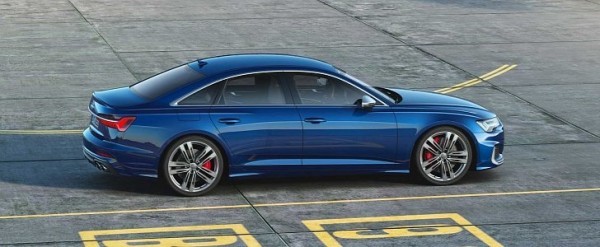
The EPC works in tandem with the exhaust-driven turbocharger, and as expected, the earth-shattering torque intertwines with fuel efficiency. Thanks to the mild-hybrid system, the belt-driven starter/alternator and lithium-ion battery allow for stop/start operation from as low as 22 km/h. Coasting for up to 40 seconds is another highlight, and Audi claims the sedan is capable of 6.2 liters per 100 kilometers (37.9 miles per gallon).
Also available as the S6 Avant, the go-faster model comes standard with quattro permanent all-wheel drive, a self-locking center differential with a 40:60 split, and wheel-selective torque control. The S7 Sportback, however, looks the best thanks to the swooping roofline.
Care to guess how much the S6 Sedan with the 3.0 TDI costs in Germany? €76,500 from the get-go. Make that €79,000 for the family-oriented S6 Avant and €82,750 for the S7 Sportback, which goes to show how expensive these technologies are. On the other hand, Audi is feeling the pressure from BMW and Mercedes-Benz to do better in the premium segment.
It remains to be seen if the S6 Avant with the 2.9 TFSI will arrive in the United States for the 2020 model year. Such a car would be an interesting alternative to customers who don’t like crossovers and SUVs, let alone people who want a family hauler with great handling. Over in the United States, the all-new A6 starts at $58,900 while the A7 Sportback is $68,000 (excl. destination).








